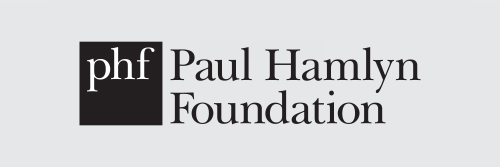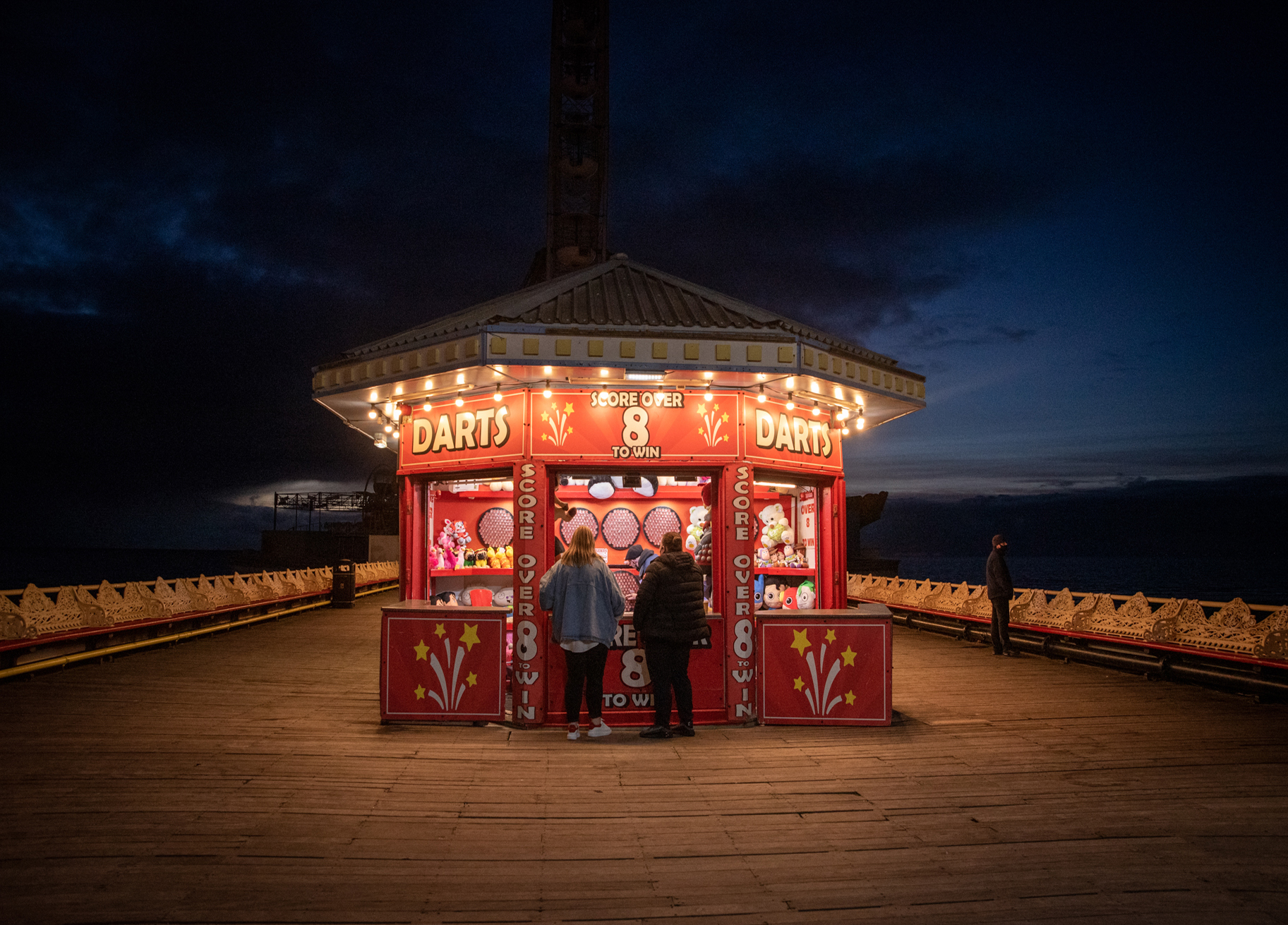
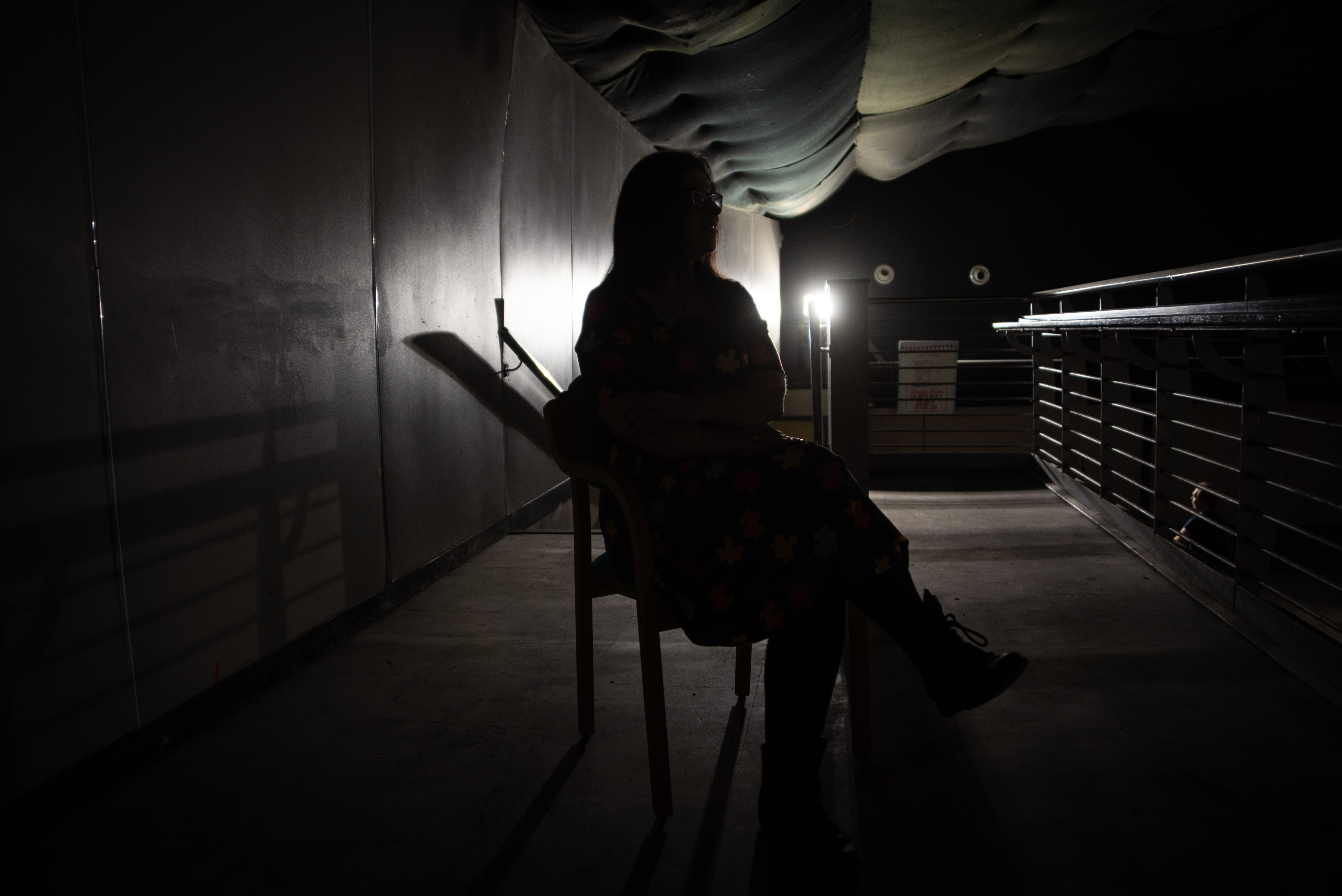
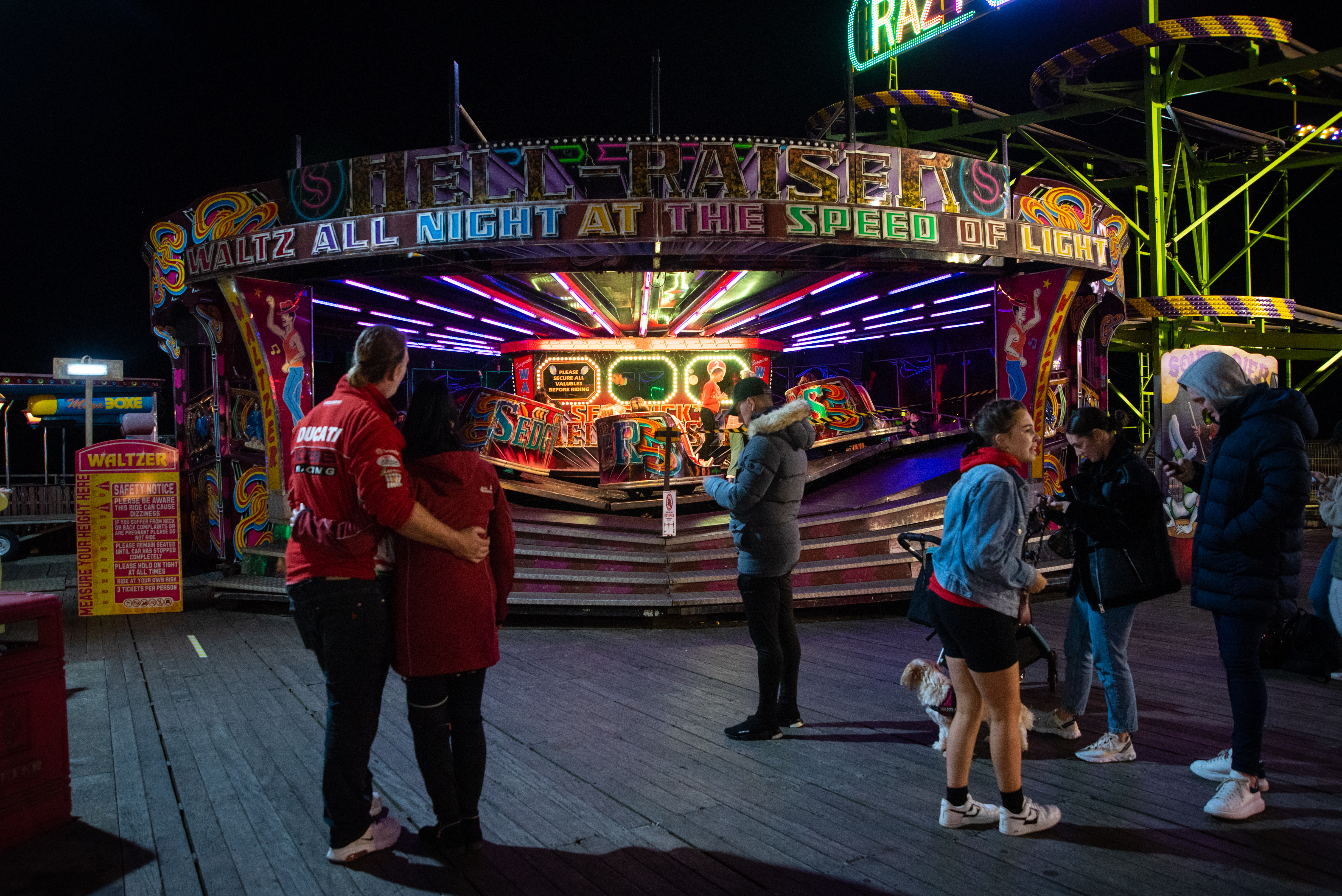
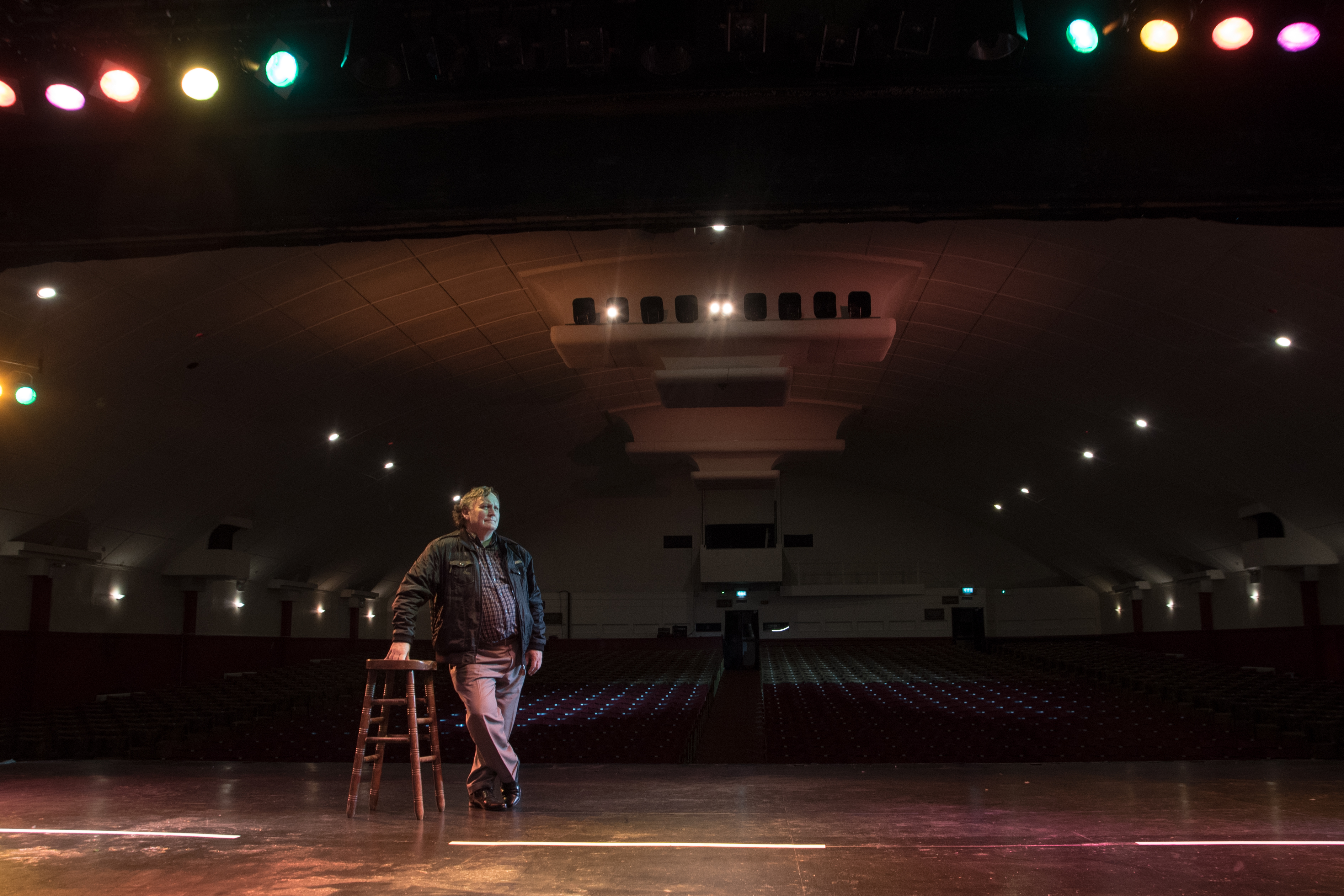
A Spotlight On… Claire Walmsley Griffiths
Claire Walmsley Griffiths is a photographer from Blackpool, Lancashire who explores the possibilities of human connection through photography. She uses a camera as a tool for conversation, engaging with the psychology of people, place, identity, what community is, was and what it might become. Claire talked to Kenn Taylor about her work, her experiences as an artist and the cultures that she wants to explore and platform.
Kenn Taylor: How did you become a photographer?
Claire Walmsley Griffiths: I went to study fine art in Northampton in 1998. I started to photograph things to draw or paint from. Then I found people like Sophie Calle and Nan Goldin. What photography did for me, I just found it very accessible and much more of an accessible language in general for the audience. I became interested in how audiences could become involved in artwork or become part of that experience. And I think I’m still really interested in that.
It felt very different being at university in the south to what it was like in the north. A lot of pretence. I remember on one occasion one of my peers at art school calling me a ‘pleb’. It felt really obvious that I was from the north even though I’d never really considered it before. But also feeling very protective to the north and to Blackpool. I’m an overly-protective person of the place I live, but it has so many qualities that do not get celebrated.
Blackpool is often used as the poster child for ‘broken Brexit Britain’ by journalists and photographers. What do you feel about that, photographers coming in looking for a particular narrative they’ve decided on even before they arrive?
It is easy to feel that jolt when the media reflects images back at Blackpool, to say ‘this is your life’. Images that might suggest lack of hope or no alternative. As someone who lives here, it can be very difficult and there is a feeling of, where is the bigger picture?
It’s what we have been fed in Blackpool over a long period of time. I don’t think it’s helpful. Not that I’m like everything should be brilliant or Disney. But I think you have a lot of power with a camera and where you point it and that needs careful consideration. It’s really tempting for people to photograph the dark side of Blackpool. It’s too easy. Street photography has changed a lot in recent times. I think it was Susan Sontag who referred to taking a picture as an ‘aggressive act’. Perhaps social media has allowed people to question it more and also be more mindful of the camera’s power. But the stories that often get told of Blackpool are often not by the people of Blackpool. I think you have a right to document or photograph your own story.
Do you feel Blackpool gets ‘used’ or ‘othered’ by the media? This happened a lot to Merseyside in the 1980s and 90s when I was growing up there. Do you think the media commissioning more locally-based artists would create more balance?
I am interested in the psychology of a place, how residents, creatives and local artists feel in response to this consistent narrative. Othering is an easy route I guess especially using a medium such as photography because how much of creating a photograph can be non-reciprocal for the subject, it’s dangerous ground. I think there is a different narrative though in places like Blackpool that often does not get explored, through social and community approaches. Everyone has a right to be creative, it’s part of the human condition. People need to feel part of something, in a conversation or their voice valued.
What did it feel like capturing those Covid lockdown images that became part of the #WorkTownGhostTown project [commissioned by The Grundy, Blackpool]?
Initially I did really enjoy the sense of peace, and there was a feeling of it being very ethereal. You could really see the buildings of Blackpool, when you look above and see the old architecture. I’d never really been able to do that as much previously I think because of vehicles going past. But then I really began to think about the performance industry and the music industry in Blackpool and the buildings that they take place in. Thinking about being younger and not being able to go and have that experience of meeting friends or drinking in pubs, or being able to dance and have a shared experience. I just really began to feel for those people and I started to speak to some of them and photograph them.
I went out again on the last day before the second lockdown, and I went on to Central Pier. It was completely quiet and I started to talk to the man who had the darts stand. If you’re someone who has grown up in Blackpool you probably will have done a job like that. He let me take his portrait and I wanted to make sure he was happy with it. He was just someone who worked for the stall owner, but he really seemed to love it. And that’s a really interesting aspect of taking photographs of people, just having time to listen to their story if they’ll share it with you.
The space of the Pier without people felt very unique, but it is really important that we do have people coming through Blackpool and spending money to support these small businesses, these music venues, grassroots venues that attract unique acts.
You did a series, Seasonal Workers; is it important for you to show the story behind the seaside artifice?
I do think it’s really important. The seasonal workers stuff is ongoing. I photographed some horse and carriage owners having their, sort of, MOT last year. Their stories seem so important for Blackpool, the seasonal jobs make up part of Blackpool’s heritage. The horse owners I’ve met, they absolutely love their horses and seem to do it more through a connection to their animals than for the job. The generations of people who own the horses and donkeys, they go back for years and years. I think the carriage owners have had a very hard time with their season cut short.
Is it important to you to tell these stories, I’m also thinking of your Retired Performers series?
I think I’m just more and more interested in the shared experience and how people can connect and photography feels really accessible for that. The reason Retired Performers came about is I was photographing a circus festival. I met this lady and there was a photograph of her as a young person and she said ‘I used to be a foot juggler’. I said ‘what’s a foot juggler?!’ And she said ‘I used to spin people on a plank on my legs’. Then she said ‘oh yes my husband performed for Hitler’. Only in Blackpool! So she was the person who sparked the idea.
It was completely different to what I anticipated the project to be. I learned a lot through doing it. I wanted 30 people who had worked professionally in Blackpool. It’s like an underground scene really, all the retired performers know each other or have connections with each other, so they were introducing one another to me. They loved the experience of being able to talk about what they’d done. I wanted it to be a collaboration. I wanted them to feel happy with their photographs and that they were aware of what was happening with the work as much as possible. I wanted to create or encourage an exchange between sitter and audience. An invitation to be part of that backstage life, what goes on behind the curtain of and how we can feel part of that. The series of images allowed me to invite performers back into spaces such as The Tower Ballroom or Winter Gardens theatres where we kind of co-created an experience.
Is that one of the things you enjoy about social practice, connecting with people?
Within photography, I do like social documentary. I’m interested in that. But people like Mary Ellen Mark who was photographing her own life and stuff going on around her, just feels more genuine. I think it takes years and months to build those relationships. That, or it’s already going on around you or it has a strong connection to you. I am interested in people, I guess this is all about having that collaboration and finding a way to build relationships. That level of trust, that you’re already part of that community or have a connection to it. I think that’s really important.
What do you think of socially engaged practice as a term?
It’s a tricky term. I prefer socially based to socially engaged in some ways. I feel like it’s an inherent thing in people to want to be involved in the community. I think it’s within care workers, nursing professions, teachers. Socially engaged practice is something I came across by chance really. I guess it has been discussed as community art in the past. But the idea that you might be able to collaborate with a group of people to make work or give people a camera to tell their own story is really powerful.
Do you separate your socially engaged work from your other photography?
I don’t think I separate it from stuff I do generally. If I was photographing for tourism, if they let me arrive early and talk to people, that’s really helpful. If I’m photographing some civic event or street performance it feels uncomfortable if I haven’t said hello to people or found out a little bit about them. And the photograph seems better if I’ve had that experience already or if they know who I am.
Do you feel you were doing ‘socially engaged practice’ before you knew of it as a term?
I definitely do feel that. It’s because I’m in that community and I am that person from a one parent family, who’s had someone close to me with addiction, who’s had a friend that was homeless at a young age. I am that person and so are they, but we are also people with a bigger story. I keep thinking about how it is easy to demonise people who are living through difficult circumstances. That those voices do not have a chance to be heard and the stories that get communicated through other mediums are often regurgitated in the same old ways. I am interested in projects where the voice is a collaboration or the story or image highlights hope and space for exchange.
Tell me about your Retired Ravers project?
Retired Ravers is in process currently. I’ve been documenting an ex-cinema space that was later a nightclub and that has now been taken over by a theatre, come art space currently being regenerated by that very community. So it’s an amazing space, the perfect space to invite in people who were in that scene.
I’ve been thinking about that loss of community and shared experience and coming together isn’t happening at the moment. But I have spoken to someone who had been there in the late 80s rave scene in Lancashire and they were quite keen on the darker drug taking aspects being addressed, leading onto darker times for some people, so I’m just considering that at the moment. I see a lot of demonisation of addiction which is really damaging for people in recovery. Perhaps it’s a class problem, you have to pay for good recovery programmes. It just opened a new layer to what I had been thinking about photographing that counter culture.
I’ve also come across quite a few women who were involved in the scene who would want to remain anonymous if they were to become involved in the project. I’ve done some test shots where I’ve photographed people anonymously, so just a soft light silhouette around people. Again I’m thinking of it as a collaboration with the sitter and the idea you could take a journey with people being involved in the project. One of the questions I want to ask those people is, was it a very accepting scene, but things feel very polarised now. Did they feel that youth culture would stay with people forever? The idea of freedom and liberty within that scene that perhaps some people felt. At its best that’s what it promoted. It feels like the places folks congregate or have a shared experience creates a kind of tangible energy.
Through your work in Blackpool as a photographer, what do you think you have discovered about community, and its future?
I am interested in how we come to believe limitations and our place in the world. That as human beings we look to identify with groups, that is my take on community – how we feel when sharing a story or relate to one another is powerful. It feels like people need to feel like they are part of something and how do we find that?
How important is class, and in particular working-class cultures, to you in your work?
I do feel like, what’s wrong with being working class? It used to be a celebrated thing and people shouldn’t be ashamed of it. I would like to see more celebration of all those working-class codes, the Working Men’s Clubs, Bingo, Rose Queens, everything. At Uni in the south, especially studying fine art, the last thing my peer group were interested in were working class stories and values, but it still gets fed back to us by media created by some who perhaps have not had that lived experience. I feel like there is opportunity now to see, hear and experience art and photography created by communities and working-class artists who are able to tell their own stories or collaborate in an empowering way. It feels like we are heading into a time where there is nothing to lose as long as we all keep listening, viewing and communicating whilst checking our own routes to what we believe is our destination.
–
Kenn Taylor is a writer and creative producer with a particular interest in culture, community, class and place.
kenn-taylor.com
@kenn_taylor
–
Images
Central Pier Dart Stall, 30 Days Of Lockdown, Claire Walmsley Griffiths, 2020
Anonymous volunteer portrait at The Old Electric, Claire Walmsley Griffiths, 2020
South Pier, Claire Walmsley Griffiths, 2020
Stage Manager at North Pier Theatre Blackpool Denis, Claire Walmsley Griffiths, 2018
